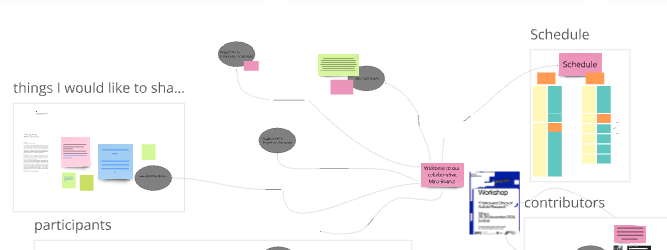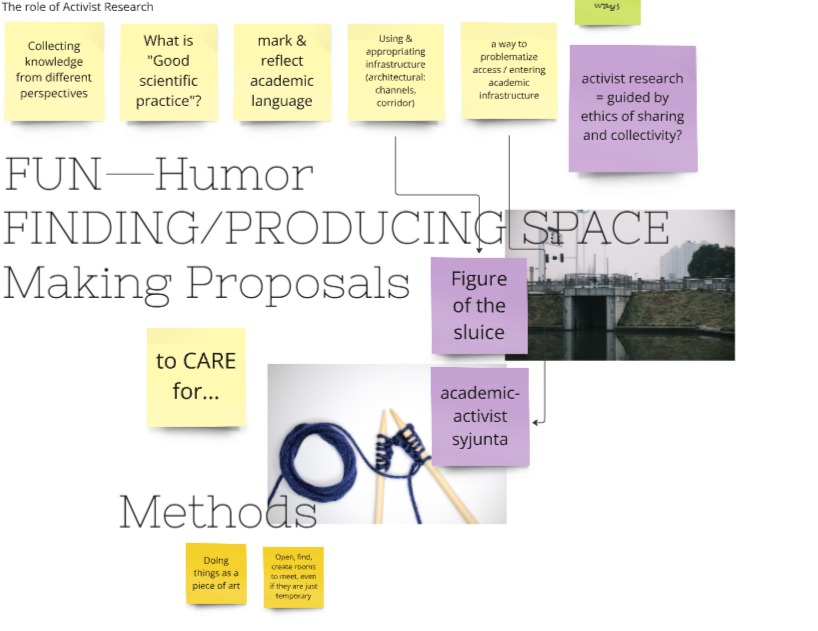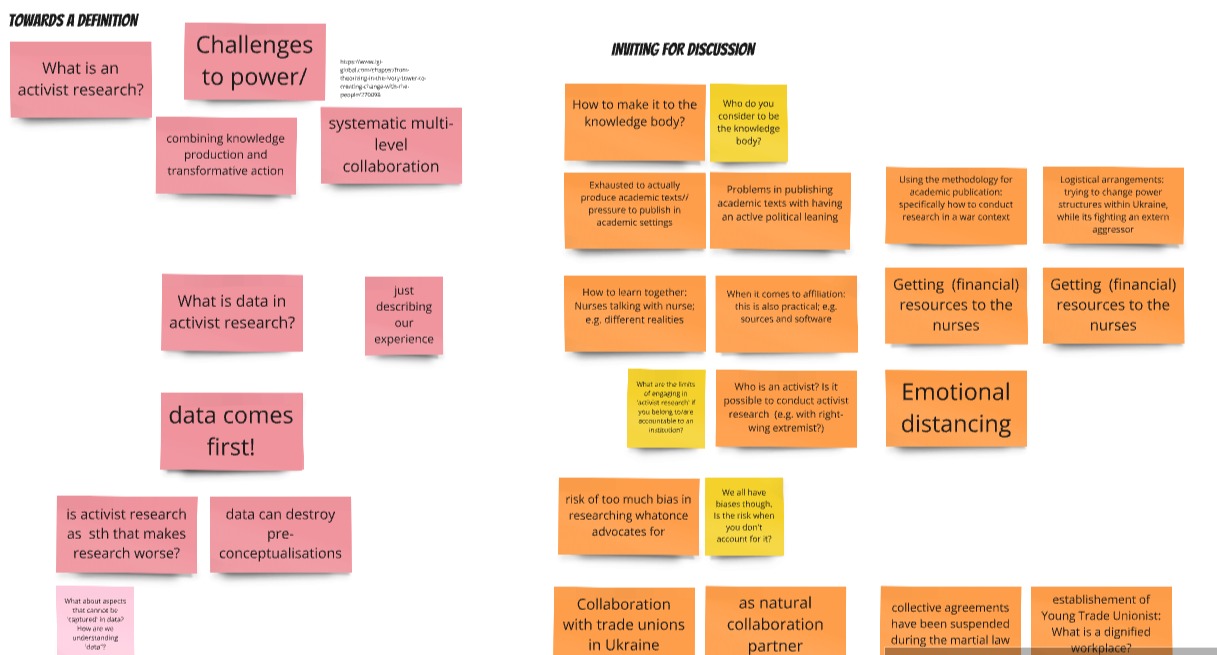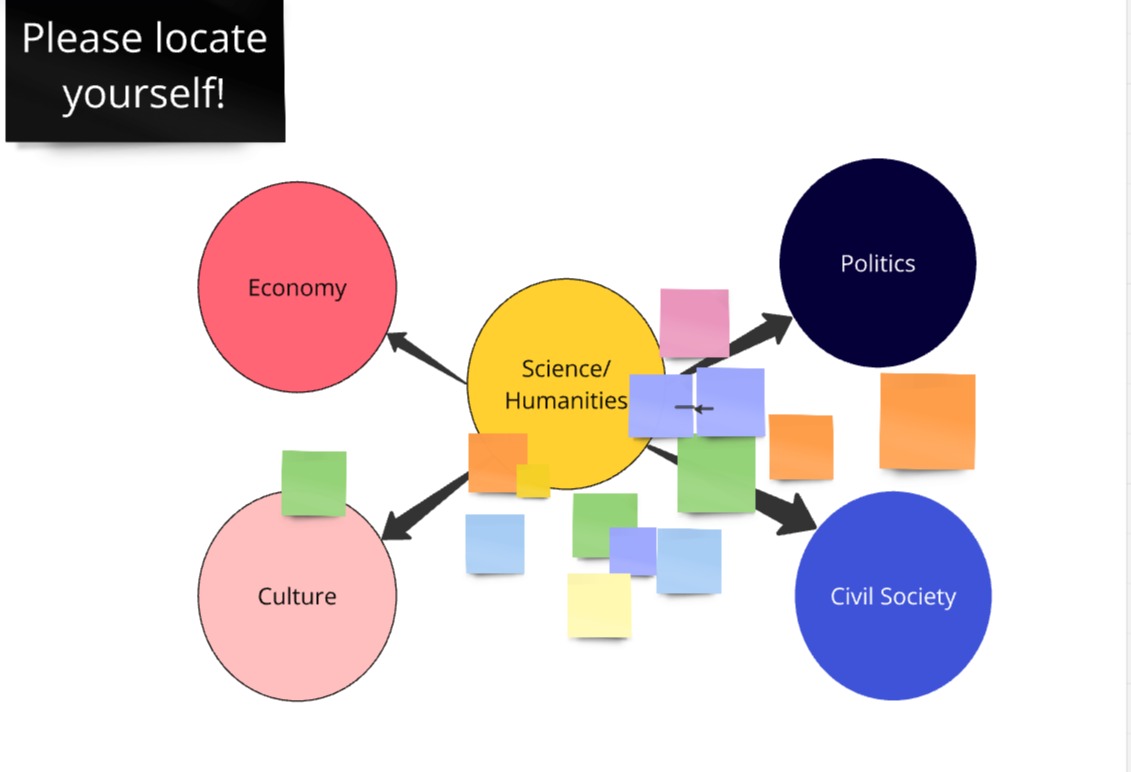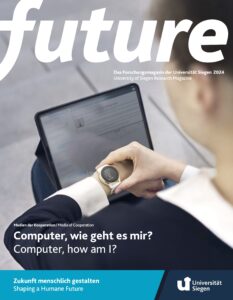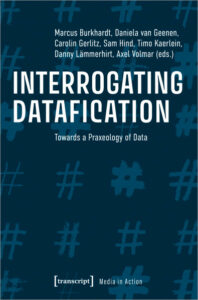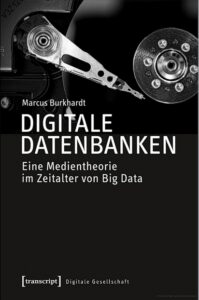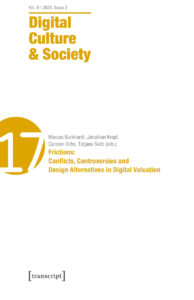News
“Seeing Style: How Style Orients Phenopractices across Action, Media, Space, and Time”
Niklas Woermann (University of Southern Denmark)
How do media practices shape our perception and interaction? Niklas Woermann, 2021 Mercator Fellow at the CRC, explores this question in his book Seeing Style.
About the Book
Based on an ethnographic study of the freeskiing subculture, the book develops a theory of phenopractices – embodied practices of the perception and expression of style. By combining approaches from phenomenology, cultural sociology and media research, Woermann provides new impulses on the role of visual order in social practices. An exciting read for anyone concerned with media, practices and cultural perception!
Editoral text:
“How do social practices prefigure experiences, and how does embodied experience organize the performance of practices? This book suggests that the classic concept of style offers a fresh answer to the question how doings and sayings are linked into practice bundles.
Based on a rich ethnographic study of the visual practices of the German-speaking freeskiing subculture, this work develops a theory of phenopractices, or embodied cultural practices dedicated to apprehending and expressing style. Focusing on the visual dimension, it extends the thought of Garfinkel and Schatzki using recent insights from science and technology studies and research at the intersection of neuroscience and phenomenology. This offers a new perspective on fundamental practice-theoretical questions about the nature of practice elements, social order in the context of rules and regularity, or action and practical intelligibility.
Each chapter discusses and develops foundational concepts such as time, space, action, emotion, or perception based on an analysis of freeskiing practices such as planning a route in the backcountry, testing a new ski model, or judging freestyle contests. The central argument is that cultural styles of conduct are not only symbolic structures, but a functional resource which organizes situational intelligibility and thus enables social order based on aligned and managed embodied routines. Because the stabilization, dissemination, and evolution of such styles happens via different media, practice change is primarily influenced by media rather than symbolic, rational, or functional needs or ends.
A rich ethnography and provocative theoretical argument of interest to anyone working on contemporary practice thought, advancing phenomenology, the sociology of vision, lifestyle sports, media, or practice evolution.”
Niklas Woermann is Head of Studies and Associate Professor at the Department of Marketing and Management at SDU Business School at the University of Southern Denmark. He was appointed Visiting Professor of Sociology at the University of Chicago in 2018 and 2021 Mercator Fellow in the CRC 11877 “Media of Cooperation” at the University of Siegen and is associated with Project B08 – Agentic Media: Formations of Semi-Autonomy. His research focuses how technology shapes consumer experience, services, and interactions. Multidisciplinary in his education, research and outlook, Niklas has published his work in outlets such as the Journal of Consumer Research, Marketing Theory and American Behavioural Scientist, as well as key publishers in sociology. Niklas, a distinguished marketing and sociology scholar, served on editorial boards, won the “Outstanding Reviewer Award” at JCR, and reviewed for the ERC. He received the “Sidney J. Levy Award” and a “Swiss National Research Foundation” scholarship.
The “Beiträge zur Praxeologie / Contributions to Praxeology” aim to place practice above all other explanatory variables and to gain, clarify or correct the basic theoretical concepts from this pre-ordering. Both the works of Wittgenstein and those of Schütz and Garfinkel refer to a common Central European genealogy of “praxeology”, which has, however, remained largely unknown to this day. The series therefore aims to develop in three directions: through philosophical theoretical work, through empirical contributions to theory formation and through contributions to the revision of the history of science.
“Historiographer: An Efficient Long Term Recording of Real Time Data on Wearable Microcontrollers”
by Michael Brilka und Kristof van Laerhoven (both University of Siegen)
Gathering data in the wild with wearables made easy. Michael Brilka and Kristof van Laerhoven published their open source Historiographer application for the Bangle.js 2 Smartwatch at Ubicomp’24 in Melbourne, Australia. Interested?
Data collection is a core principle in the scientific and medical environment. To record study participants in daily life situations, wearables can be used. These should be small enough to not disrupt the lifestyle of the participants, while delivering sensor data in an accurate and efficient way. This ensures a long recording time for these battery-powered devices. Current purchasable wearable devices, would lend themselves well for wearable studies. Simpler devices have many drawbacks: Low sampling rate, for energy efficiency and little support are some drawbacks. More advanced devices have a high-frequent sampling rate of sensor data. These, however, have a higher price and a limited support time.
Our work introduces an open-source app for cost-effective, high-frequent, and long-term recording of sensor data. We based the development on the Bangle.js 2, which is a prevalent open-source smartwatch. The code has been optimized for efficiency, using sensor-specific properties to store sensor data in a compressed, loss-less, and time-stamped form to the local NAND-storage. We show in our experiments that we have the ability to record PPG-data at 50 Hertz for at least half a day. With other configurations, we can record multiple sensors with a high-frequent update interval for a full day.
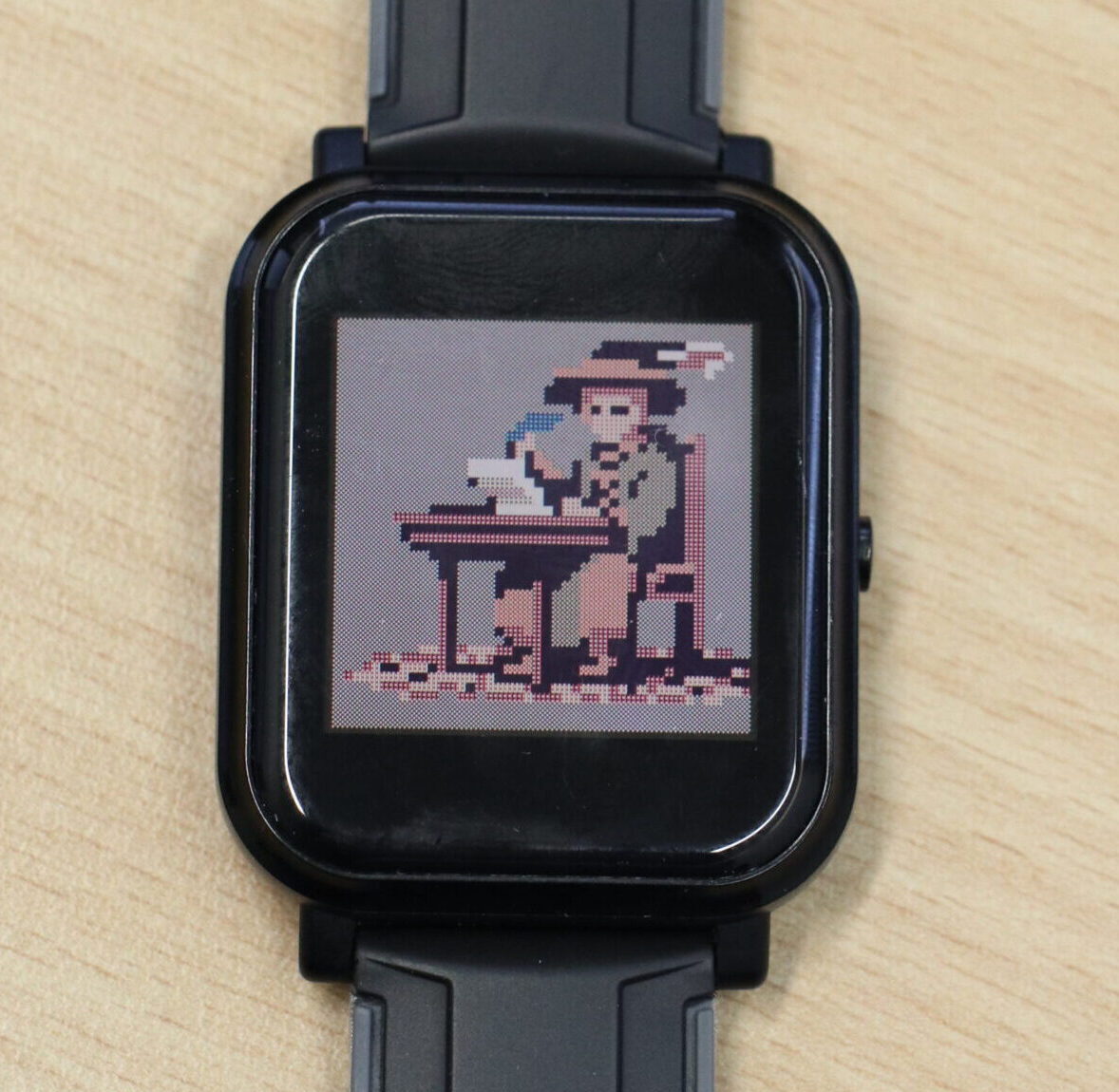
Michael Brilka is a Research Associate in the project „P05 – Social Interaction in Semi-Automated Road Traffic“ at the Collaborative Research Centre 1187 –“Media of Cooperation”. Kristof van Laerhoven is professor for the Ubiquitous Computing at the University of Siegen and is principal investigator for the project „P05 – Social Interaction in Semi-Automated Road Traffic“ at the Collaborative Research Centre 1187 –“Media of Cooperation”.
Ubicomp is a premier venue for presenting research in the design, development, deployment, evaluation and understanding of ubiquitous computing systems. Ubicomp is an interdisciplinary field of research and development that utilizes and integrates pervasive, wireless, embedded, wearable and/or mobile technologies to bridge the gaps between the digital and physical worlds. Ubicomp will bring together top researchers and practitioners who are interested in both the technical and applied aspects of Ubiquitous Computing technologies, systems and applications. The Ubicomp program features keynotes, technical paper and notes sessions, specialized workshops, live demonstrations, posters, video presentations, and a Doctoral Colloquium.
Investigating the interplay of media, data, and language in domestic environments – now available as an open-access volume
von Stephan Habscheid (University of Siegen)/ Tim Hector (University of Siegen)/ Dagmar Hoffmann (University of Siegen)/ David Waldecker (TU Darmstadt) (Eds.)
We are delighted to announce the publication of Voice Assistants in Private Homes: Media, Data, and Language in Interaction and Discourse, an interdisciplinary volume edited by Stephan Habscheid, Tim Hector, Dagmar Hoffmann, and David Waldecker from our CRC. This open-access book provides various contributions regarding voice assistant technologies and their integration into daily life.
The new volume examines voice assistants from different angles, including perspectives of linguistics, sociology, media studies, HCI-research and law, addressing issues such as media and data practices, surveillance, data capitalism, anthropomorphisation, privacy concerns, and the domestication of technology in households. The volume is freely available online through open-access publishing with transcript – you can download the ebook here.
Contributions include analyses of linguistic practices and conceptualisations, studies on capitalist practices and the negotiation of surveillance and privacy as well as reflections on the sociotechnical dynamics of voice assistants. The book also considers broader implications for data ethics and AI development with an outlook on the latest developments in the rise of Large Language Models. The compliation also includes an interview with Nikolai Horn, political advisor on ethical and legal aspects of the digital sphere, dealing with voice assistants and the GDPR.
This publication is essential reading for researchers dealing with human-machine-dialogs, platform technologies, issues of surveillance, privacy and data protection in linguistics, media studies, sociology, and related fields, in particular (but not limited to) those interested in the role of intelligent personal assistants.
The book is part of the Media in Action book series, edited by the Collaborative Research Centre 1187 “Media of Cooperation” at the University of Siegen.
About the researchers
Stephan Habscheid (Prof. Dr.) is a professor of German studies and applied linguistics at Universität Siegen. He is principal investigator of the interdisciplinary project B06 »Un/desired Observation in Interaction: Smart Environments, Language, Body and Senses in Private Homes« at the Collaborative Research Center 1187 »Media of Cooperation«, Universität Siegen (together with Dagmar Hoffmann). His research interests include media linguistics, linguistic praxeology, language in institutions and organizations as well as small talk and conversation. Tim Hector (Dr. des.) works as a research assistant at the Collaborative Research Center 1187 »Media of Cooperation« in the project B06 »Un/desired Observation in Interaction: Smart Environments, Language, Body and Senses in Private Homes« at Universität Siegen. He did a PhD in applied linguistics on the linguistic domestication of voice assistants. His research interests include media and cultural linguistics, conversation analysis linguistic domestication of media technologies and spoken language in human-computer-interaction.
Dagmar Hoffmann (Prof. Dr.) is a professor of media sociology and gender media studies at Universität Siegen, Germany. She is principal investigator in the interdisciplinary project B06 »Un/desired Observation in Interaction: Smart Environments, Language, Body and Senses in Private Homes«« at the Collaborative Research Center 1187 »Media of Cooperation«, Universität Siegen (together with Stephan Habscheid). Her research is focused on media and cultural sociology, digital literacy, and political participation. David Waldecker (Dr.) is a sociologist and an academic librarian in training at Universitäts- und Landesbibliothek Darmstadt. He was a post-doc at the Collaborative Research Center 1187 »Media of Cooperation«, Universität Siegen, and published his dissertation on Adorno in the recording studio in 2022.
About the Media in Action Series
The open access series Media in Action, conceived by the DFG Collaborative Research Centre 1187 “Media of Cooperation”, examines the history and present of networked, data-intensive media and their social implications at the interdisciplinary interface of social and media sciences. In the tradition of science and technology studies and actor-network theory, the German and English-language monographs, anthologies and dissertations in the series focus on the practices, (co-)operations and procedures in the use, production and analysis of old and new media. A central challenge facing the series is the development of appropriate ethnographic, digital, sensor-based and design-oriented methods for a new conception of the description of distributed ‘agency’ between people, computers, bodies and environments. The Media in Action Series is funded by the German Research Foundation (DFG) – project number 262513311 – CRC 1187. The series is edited by Timo Kaerlein, Isabell Otto and Tristan Thielmann.
SFB follows the nationwide initiative
Numerous universities and research institutions jointly announced that they will cease their activities on Platform X. The University of Siegen participates in the initiative. The SFB also follows the call and freezes its account on Platform X.
➞ Press release of the University of Siegen (available only in German)
➞ Joint press release of 63 universities and research institutions (available only in German)
The CRC continues posting on its other channels. Follow us!

Job OFFER:
You are creative, organized and want to be part of an interdisciplinary team and get to know the exciting and varied world of science communication? Writing articles and helping to organize events sounds like your thing and you want to bring science to life online and offline? Then we are looking for you!
Student assistance position in SFB project Ö
In the DFG Collaborative Research Centre 1187 „Media of Cooperation“ we are looking for 1-2 student assistants (SHK)(m/f/d) or 1-2 research assistants with a Bachelor’s degree (WHB)(m/f/d) for the project Ö – Public relations: cooperative research and design as of April 1, 2025 under the following conditions:
- 8-19 hours/week, as preferred
- initially for 1 year, with the possibility of extension
- Employment on the basis of the Wissenschaftszeitvertragsgesetz
What you can expect from working with us:
- Science communication: You get to the heart of topics. We need your help writing texts in German and English for news articles on our website, for our social media channels and for press releases.
- Your creativity is in demand: create impressive posters, flyers, social media graphics, information and advertising materials..
- Content management: Maintain our website. Keep the content up to date, maintain the event information and publish news articles..
- Hands-on at events: Your ideas and hands are needed. Help with the organization and implementation of public SFB events, e.g. the Open University Day
What you should bring along:
- You are enrolled in one of the subjects of our CRC 1187 (e.g. media studies, ethnology, sociology, social sciences, (business) informatics, linguistics, human Computer Interaction, Ubiquitous Computing, Science and Technology Studies, Education, Law and Engineering).
- You enjoy organizing things and helping to shape public relations work creatively.
- Communication skills are your strength.
- You work in a structured manner, are independent and responsible.
- Extra points are earned for knowledge of Adobe Creative Cloud – especially InDesign and WordPress (with regard to our new science podcast: possibly also skills in sound editing programs such as ProTools, Audacity or Adobe Audition)..
What we offer you:
- A motivated, friendly team and a relaxed working atmosphere.
- Flexible working hours and the option to work from home – so university and job go together.
- Exciting insights into public relations and science communication.
- Free access to the Adobe Creative Cloud – let your creativity run wild!
Sounds great? Then send us a short application by 05.02.2025 and show us why you are the perfect fit for our team. Send your application documents (letter of motivation, personal introduction, CV, certificates) in a pdf file to Dr. Karina Kirsten (karina.kirsten[æt]uni-siegen.de). We look forward to getting to know you.
Your contact person:
Dr. Karina Kirsten
+49(0)271 – 740-5252
karina.kirsten[æt]uni-siegen.de
Eine Informations- und Diskussionsveranstaltung zur elektronischen Patientenakte (ePA)
organisiert von Dennis Kirschsieper, Stephan Krayter und Claudia Müller (alle Universität Siegen)
In Kooperation mit dem Digitalen Facharzt- und Gesundheitszentrum (DFGZ) der Arztpraxis Spieren & Kollegen in Olpe (https://spieren.de/dfgz/) hat das Teilprojekt A05 „Kooperative Herstellung von Nutzerautonomie im Kontext der alternden Gesellschaft“ am 8. Januar 2025 eine Informations- und Diskussionsveranstaltung zu elektronischen Patientenakte in Olpe und Siegen organisiert.
Anlass ist die Einführung der neuen elektronischen Patientenakte (ePA) am 15. Januar 2025, mit der in Deutschland ein weiterer Schritt in Richtung eines stärker digitalisierten Gesundheitssystems vollzogen wird. Gesundheitsdaten können nun leichter gespeichert und verarbeitet werden, z.B. wird der Austausch von medizinischen Dokumenten zwischen Arztpraxen, Apotheken, Kliniken und den Patient*innen erleichtert, da Unterlagen digital vorhanden sind und nicht erst angefordert werden müssen. Die Einführung der ePA ist allerdings nicht nur mit Vorteilen und Erleichterungen, sondern auch mit Herausforderrungen, offenen Fragen und Bedenken verbunden, z.B. bezüglich des Datenschutzes.
Die Arztpraxis Spieren & Kollegen hatte ihre Patient*innen für den 8. Januar nach Olpe eingeladen, wo Expert*innen der Kassenärztlichen Vereinigung (KVWL) sowie Vertreter*innen der Krankenkassen Vorträge gehalten und Fragen beantwortet haben. Dies wurde live an die Universität Siegen übertragen, wo interessierte Forschende, Studierende und Bürger*innen sich zusammengefunden hatten, um online mitzudiskutieren.
Im Anschluss gab es in Siegen noch einen zweiten Teil. Die Digitalisierungsexpertin und Landtagsabgeordnete Julia Eisentraut (Bündnis 90/Die Grünen, https://julia-eisentraut.de/) stand hier zur Verfügung, um politische Sichtweisen auf das Thema einzubringen und zu diskutieren. Bei der Vorbereitung des Events war auch Bernd Mäckeler von den Grünen Alten in Siegen beteiligt, der sich mit seinen Kolleg*innen von den Grünen Alten und mit Unterstützung durch das Teilprojekt A05 engagiert dafür einsetzt, die Digitalkompetenzen älterer Menschen in Siegen und Umgebung zu fördern. Des Weiteren waren die Teilvorhaben „Gesundheit & Altern“ sowie „Soziales & Inklusion“ des Projektes FUSION (https://fusion.uni-siegen.de), vertreten durch Stephan Krayter, in der Organisation und Durchführung des Events eingebunden.
Für die Zukunft sind weitere Kooperationsveranstaltungen zur Digitalisierung des Gesundheitssystems geplant, um Bürger*innen an der Forschung zu beteiligen und um gemeinsam die medizinische und soziale Versorgung in der Region zu verbessern.
Über die Forschenden
Dennis Kirschsieper ist wissenschaftlicher Mitarbeiter im Teilprojekt A05 Kooperative Herstellung von Nutzerautonomie im Kontext der alternden Gesellschaft des Sonderforschungsbereichs 1187 Medien der Kooperation und promoviert zum Thema Privatsphäre und Datenschutz. Seine Forschungsinteressen umfassen Telecare, Telemedizin, Caring Communities und Digitalkompetenzen älterer Menschen.
Stephan Krayter ist wissenschaftlicher Mitarbeiter im Projekt FUSION. Seine Forschungsinteressen liegen an der Schnittstelle von Gesundheitssoziologie, Sozio-Informatik, Digitalisierung und Nutzungsakzeptanz. Er beschäftigt sich insbesondere mit der Frage, wie digitale Entwicklungen sozialverträglich ausgestaltet werden können und wie die Gesundheitsversorgung durch Digitalisierung verbessert werden kann.
Claudia Müller ist Professorin für Wirtschaftsinformatik, insbesondere IT für die alternde Gesellschaft an der Universität Siegen und leitet das Teilprojekt A05 Kooperative Herstellung von Nutzerautonomie im Kontext der alternden Gesellschaft am Sonderforschungsbereich 1187 Medien der Kooperation.
A Workshop Summary (November 25 & 26, 2024)
written by Miglė Bareikytė, Julia Bee, Johanna Hiebl, Hannah Schmedes and Xenia Waporidis
Our workshop on the Politics and Ethics of Activist Research in November 2024 brought together scholars and activists to explore ways of doing activist research and the question of how academic research can collaborate with activist practice. In times of democracies being at risk of climate catastrophe and war in Europe, one of the meaningful ways of conducting research is to engage with the issues that are pressing and work alongside those experts from civil society who have the deepest understanding of them. Two CRC 1187 “Media of Cooperation” projects B09 – “Bicycle Media” and P06 – “War Sensing” – organised the workshop to bring together activists and researchers. The two-day event brought together approximately 60 international scholars and activists online to share their experiences, address challenges, and discuss ethical concerns related to activist research. Rooted in the interdisciplinary focus of the CRC “Media of Cooperation” with its praxeological approach to digital and data-based media, the workshop tackled key themes of collaborative knowledge production in an ethical way. It also addressed precarity and biases and advancing social justice through activist-academic collaboration.
As defined by scholars like Susan Strega and Leslie Brown, activist research is distinct from participatory methods in that it prioritises ethical co-production of knowledge and transformative action (Strega & Brown, 2015). The workshop’s goal was to explore and share how both researchers and activists can foster equitable collaboration and address the ethical complexities inherent in such work.
While activist research is always situated, it also follows global demands that allow it to intersect with the concerns, struggles and critiques of other cases that one is not directly involved in. Activist researchers aim to achieve particular situated goals that are oriented towards larger claims to power, such as improving the practice of justice or labour conditions. At the same time, activist research is embedded in old and new forms of controversy, involving the continuation of hierarchies between activists and scholars or the appropriation of struggles and their vocabularies. Activist research is thus an approach that goes beyond participation, demanding more resources for and analysis of ongoing cooperations between research and political struggles.
By critically engaging with concepts of activist research, the workshop aimed to move beyond traditional science communication with its focus on informing. Instead, it emphasised collaborative knowledge production with issue publics, such as mobility justice activists in the project B09 – “Bicycle Media” and civil society actors from Ukraine in the framework of the project P06 – “War Sensing”, both of which focus on working with activists.
These issues were addressed by two keynote speakers on the first day. Giancarlo Fiorella, the Head of Research from Bellingcat, elaborated on the potential of open science and open-source investigations to democratise research and blur the line between the researcher and the public, allowing for broader public participation in creating different forms of knowledge. Sevda Can Arslan, a media scholar from the University of Paderborn, made a strong case for the need to foster dialogue between academia and society in order to create knowledge that resonates beyond institutional boundaries. She also reflected on the tensions between applied research, public science, and science communication.
On the second day, the workshop was divided into three sessions, each looking at activist research from the perspective of case studies: 1. feminist archiving and editing practices, 2. mapping, and 3. collaborating with healthcare workers during the war in Ukraine. The case focus is important here because it illustrates how activist research is always embedded in particular communities and requires sustained attention in order to change the situation on the ground.
1
Chris Regn and *durbahn (bildwechsel/Who writes his_tory) hosted a session on feminist archiving and editing of Wikipedia, both of which emphasised the principles of inclusivity and shared knowledge production. Their activist practice aims to disrupt traditional archival practices by prioritising alternative, less represented narratives and amplifying voices that have been historically excluded from dominant historical accounts. Chris Regn and *durbahn illustrated how such archiving and editing practices challenge traditional epistemological hierarchies and call for a reflexive approach that acknowledges the researcher’s situatedness and positionality in knowledge production. A dynamic and lively discussion unfolded on the subject of integrating feminist archiving and web-editing methodologies into academic research practices. Inspired by practices such as Sweden’s Syjunta—a gathering of women to knit and talk—participants emphasised the value of creating alternative spaces for collaboration. Changing the physical environment was noted as a way of encouraging different forms of interaction. Two compelling metaphors emerged from this conversation: the sluice, representing the facilitation of collective practices, and weaving/knitting, symbolising the interweaving of diverse threads of knowledge and collaboration. These metaphors highlighted that activist research thrives on an ethic of sharing and collectivity, reshaping how knowledge is produced and disseminated to empower communities and challenge hierarchical norms.
2
The second session, led by Paul Schweizer (Kollektiv Orangotango), focused on collective mapping as a both research practice and a medium of cooperation practice. Examples from Indigenous land claims, urban housing crises, and pandemic-era mutual aid efforts demonstrated the dual nature of mapping in activism. Paul Schweizer identified key insights critical to the ethical use of mapping in activist contexts, distinguishing between internal mapping used as a community strategy and external mapping designed for public advocacy. He argues for mapping as a tool for activist issues. He also emphasised that research findings need be tailored to resonate with diverse audiences, ranging from legal courts to social media platforms, in order to maximise accessibility and impact. The discussion also highlighted the double-edged nature of mapping, where maps can empower communities, but also can expose vulnerable groups to risks. This prompted an examination of the necessity of discerning when mapping is not the optimal approach. The significance of reflexivity and ethical awareness was underscored, with researchers being urged to prioritise community safety and adopt context-sensitive practices to achieve a balance between the empowering potential of mapping and the ethical responsibilities it entails.
3
In a third session, Tasha Lomonosova (ZOiS), presented findings and insights from her collaborative research on nurses’ labor during wartime in Ukraine, exemplifying how activist research combines knowledge production with transformative action aimed at addressing and resolving social inequalities. Nurses from different parts in Ukraine actively participated in every stage of the research process, including conducting interviews with fellow nurses. This approach aimed to address and reduce power imbalances both within healthcare systems and between academic researchers and practising nurses who lacked formal research training. Tasha Lomonosova’s session highlighted the challenges of conducting activist research in wartime, such as the unequal power dynamics between Ukrainian and international collaborators, but also the resilience of collaborative research practices as transformative under conditions of war. Participants discussed practical dilemmas, such as how to navigate ideological differences within partner organisations and how to handle sensitive data that may conflict with activist goals, emphasising the need for researchers to be not only reflexive but also flexible. A key concern was to avoid the tendency to treat grassroots groups as monolithic entities, and instead to recognise their diversity and internal complexity.
Overall, the workshop provided a space to discuss the intersection of different approaches to activist research, including its practices, methods and ethical concerns, each drawing on specific cases. As organisers of the workshop, we want to thank everyone who joined this workshop for their mutual support and collaboration.
The project B09 – “Bicycle Media” investigates cooperative mobility practices of cycling. It contributes to a media-scientific concept of mobility against the background of the cooperative and sensory design of public spheres. Julia Bee is principal investigator in the project B09 – “Bicycle Media” at the DFG-funded Collaborative Research Centre 1187 “Media of Cooperation” hoilds a chair in Gender Media Studies with special emphasis on diversity at the Ruhr University Bochum.
Hannah Schmedes and Xenia Waporidis are researchers in the project B09 – “Bicycle Media” at the DFG-funded Collaborative Research Centre 1187 “Media of Cooperation” and are both doctoral researchers at the Ruhr University Bochum.
The project P06 – “ War Sensing” researches civilian documentary, archival and investigative media and data practices of war: War Sensing. The project thus makes a situated research contribution to the medial entanglement of the human and technical sensorium as well as to the knowledge politics of war. Miglė Bareikytė is is principal investigator in the project P06 – “War Sensing ” at the DFG-funded Collaborative Research Centre 1187 “Media of Cooperation” and holds the Chair for Digital Studies at European University Viadrina in Frankfurt (Oder).
Johanna Hiebl is a researcher in the project P06 – “War Sensing” at the DFG-funded Collaborative Research Centre 1187 “Media of Cooperation” and is a doctoral researcher at the European New School for Digital Studies in Frankfurt (Oder).
New issue of the research magazine future features the Collaborative Research Center “Media of Cooperation”
Under the title “Computer, how am I?”, the focus of the 6th issue of the research magazine future (in German and English) is on topics from the Collaborative Research Center (CRC).
→ Click here for the current issue
About the new issue
The new issue focus on the question what humans do with media and media do with us. Since 2016, the Collaborative Research Center (CRC) Media of Cooperation at the University of Siegen has been examining phenomena in digital society. This area is developing at a rapid pace. The researchers are increasingly focusing on sensor media and AI. They have found that machine and human sensory abilities are becoming increasingly intertwined.
Of humans and media (p. 4)
An article about the new research focus on AI and sensor media at the CRC.
From observer to actor. Today, algorithms in computer programs are autonomously making decisions (p. 11)
An article about the research in project B08 “Agentic Media: Formations of Semi-Autonomy”.
Live news from war zone: Social media and messenger services supply news and images from Ukraine daily (p. 18)
An article about the research in P06 “War Sensing”.
Blurring the boundaries of private life: Living in a smart home (p. 25)
An article about the research in B06 “Un-/desired Observation in Interaction: Smart Environments, Language, Body, and Senses in Private Households”.
Virtual pasture boundaries: Sensors are keeping animals in their place (p. 33)
An article about the research in P04 “Precision Farming: Co-operative Practices of Virtual Fencing”.
The research magazines frequents once every year since 2019 with a number of copies 3,500. All topics are discussed or determined together with the Research and Young Scientific Academics Commission, the Research Funding Unit and Prof. Dr. Thomas Mannel, the Prorector for Research and Junior Scientists. The main requirement for the decision is that it is cutting-edge research that is future-oriented. All issues are open-accessed.
Would you like to receive one or more print copies, for yourself, for national or international partners? You can order print copies via future@presse.uni-siegen.de. We will gladly add you to our subscription distribution list, free of charge, of course.
CRC 1187 congratulates Marcus Burkhardt on his appointment to the professorship for “Media, Algorithms and Society” at Paderborn University
The CRC 1187 “Media of Cooperation” congratulates Marcus Burkhardt on his appointment at Paderborn University! Since the winter semester 2024/2025, he has held the professorship for “Media, Algorithms and Society” there.
➞ Marcus Burkhardts’ profile at the University of Paderborn
Until his appointment, Marcus Burkhardt was a research fellow at the Media Studies Department at the University of Siegen and played a key role in shaping the CRC 1187 “Media of Cooperation” in recent years. As a project leader, he is responsible for two central research projects: B08 – “Agentic Media: Formations of Semi-Autonomy“ (together with Prof. Dr. Karin Knorr Cetina) and A07 – “Industry of Personal Data” (together with Prof. Dr. Maximilian Becker).
In addition to positions at the Digital Media Lab at the Technical University of Munich and a guest professorship at the University of Paderborn, he also led the Hybrid Publishing Lab at the Leuphana University of Lüneburg. He received his doctorate from the International Graduate Centre for the Study of Culture at Justus Liebig University Giessen with a thesis on the media history and theory of digital databases. Burkhardt’s research operates at the interface of media studies, philosophy and computer science. It is focused on the history and theory of digital media, critical software, code and algorithm studies, digital methods, cultures, and computational cultures. He currently lectures on “Prompting as a cultural technique” and “Digital media: approaches and controversies”.
His publications include the 2022 co-edited volume Interrogating Datafication. Towards a Praxeology of Data and his 2015 dissertation Digitale Datenbanken: Eine Medientheorie im Zeitalter von Big Data. In addition to various contributions to journals and edited volumes, he most recently co-edited the special issue “Frictions: Conflicts, Controversies and Design Alternatives in Digital Valuation” (2025) of Digital Culture & Society.
In 2015, he founded the open access publishing house Meson Press together with Mercedes Bunz and Andreas Kirchner, which specializes in open access publications on digital cultures.
The role of sensor technologies in private and public life
Karina Kirsten (University of Siegen)
This year’s annual conference of the Collaborative Research Centre ‘Media of Cooperation’ focuses on the role of sensor technologies in public and private life. Scholars worldwide will come together at the University of Siegen from 13 to 15 November.
→Further information on the annual conference
About the annual conference
The annual conference of the Collaborative Research Centre (CRC) 1187 ‘Media of Cooperation’ will focus on the topic ‘Scaling Sensing – Sensing Publics: Landscapes, and Borders, Homes and Bodies’. From 13 to 15 November, researchers at the University of Siegen will discuss the role of sensor technologies in public and private life. How do sensors and sensing practices shape different public spaces? What dynamics can be observed between sensing practices and the public sphere?
There is great interest in the topic. More than 60 researchers from media studies, linguistics, computer science, cultural studies, social sciences, engineering, anthropology, educational science and history are participating in the Siegen event. The focus will be on case studies on sensors and media and sensory impressions from various fields of practice.
The Collaborative Research Centre ‘Media of Cooperation’ has been investigating phenomena of the digital society since 2016. The development is rapid: In the first funding phase (2016-2019), the CRC focused on the relevance of social media and platforms, while the second phase (2020-2023) centered on data-intensive media and data practices. In its third and final funding phase (2024-2027), the CRC inquires the interplay between sensor media and artificial intelligence (AI) and, with the annual conference now taking place, turns its attention to the relationship between sensor media, artificial intelligence (AI) and the public.
Sensor media are now part of everyday life. They record movements, design smart homes, collect environmental data and control semi-autonomous driving. They fundamentally change how we perceive, sense and produce knowledge, influence how we recognise environments – from landscapes and cities to private homes – and locate our bodies within them. However, they offer solutions to various social, political, technological, medical and ecological challenges and raise ethical and political concerns. They undermine privacy, threaten our data sovereignty and reinforce social inequalities. Therefore, the critical discussion of sensor technologies and their application contexts is essential for the public.
Four panels at the annual conference will provide space for 17 interdisciplinary presentations by researchers from Siegen and abroad – including Paris, Geneva, Eindhoven, Montreal, Basel, Waltham, US, Luxembourg and Texas. On the first day, Panel 1 ‘Sensing Landscapes’, will examine various perceptual practices in natural environments. On the second day, Panel 2, ‘Sensing Borders’, and Panel 3, ‘Sensing Bodies’, will focus on the socio-political consequences of drawing borders and the social interplay of human and technical perception. On the last day, Panel 4, ‘Sensing Homes’, will discuss our understanding of privacy using the example of smart home technologies.
Particular highlights of this year’s annual conference are the keynotes on Wednesday and Thursday evenings by David Howes, Professor of Sociology and Anthropology at Concordia University in Montreal, Canada, and Jürgen Streeck, Professor of Communication Studies, Anthropology and German Studies at the University of Texas. David Howes will speak on the ‘Anthropology of the Senses’, highlighting the importance of sensory experiences for understanding community and the public sphere in modern societies. In his keynote speech, Jürgen Streeck will analyse the role of gestures and multimodal interaction in communication between people and between people and technology and show how such interactions shape our perception of social reality.
The conference promises exciting insights into current research questions around sensor technologies and the public sphere and a critical dialogue on the challenges and opportunities associated with the technical recording of our perception and environment.
Contact:
Dr. Karina Kirsten (CRC „Media of Cooperation“, Scientific Coordination)
E-Mail:
Tel.: 0271 740 5252
4 / 16
